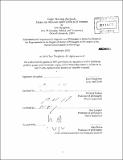Help! not just anybody : essays on altruism and conflicts of interest
Author(s)
Dougherty, Tom (Tom J.)
DownloadFull printable version (4.323Mb)
Alternative title
Essays on altruism and conflicts of interest
Other Contributors
Massachusetts Institute of Technology. Dept. of Linguistics and Philosophy.
Advisor
Richard Holton and Rae Langton.
Terms of use
Metadata
Show full item recordAbstract
If you can help someone without detriment to your interest, nor anyone else's interest, then it is clear that you ought to do so. But things are not always so easy. When there is a conflict of interest, you have to decide what to do. Whom should you help when you cannot help everyone? How much should you sacrifice to help others? May you expose people to risks when helping them? This dissertation addresses aspects of these questions. You ought to save a larger group of people rather than a distinct smaller group of people, all else equal. Why? Chapter 1, "Rational Numbers," offers an explanation. Its two parts can be roughly summarized as follows. First, you are morally required to want each person's survival for its own sake. Second, you are rationally required to achieve as many of these ends as possible, if you have these ends. Chapter 2, "Ambition and Altruism in the Dynamic Moral Life," poses a puzzle. We would like an account of beneficence to be moderately demanding, and yet still to require you to be ambitious with your altruism. How can these diverging desiderata be simultaneously met? Drawing on empirical work, the chapter defends the following solution: beneficence requires you to develop morally, and increase how much you give over time. Chapter 3, "Chancy Charity and Aggregative Altruism," argues that two initially attractive claims are inconsistent. First, you must save someone's life rather than cure the headaches of many. Second, you may take a small risk of someone's death when curing this person's headache. Since we are unable to hold both these claims, we are in danger of lacking an explanation of some common intuitions about risk and the priority of serious needs. A candidate explanation is considered, but criticized.
Description
Thesis (Ph. D.)--Massachusetts Institute of Technology, Dept. of Linguistics and Philosophy, 2010. Cataloged from PDF version of thesis. Includes bibliographical references (p. 54-56).
Date issued
2010Department
Massachusetts Institute of Technology. Department of Linguistics and PhilosophyPublisher
Massachusetts Institute of Technology
Keywords
Linguistics and Philosophy.